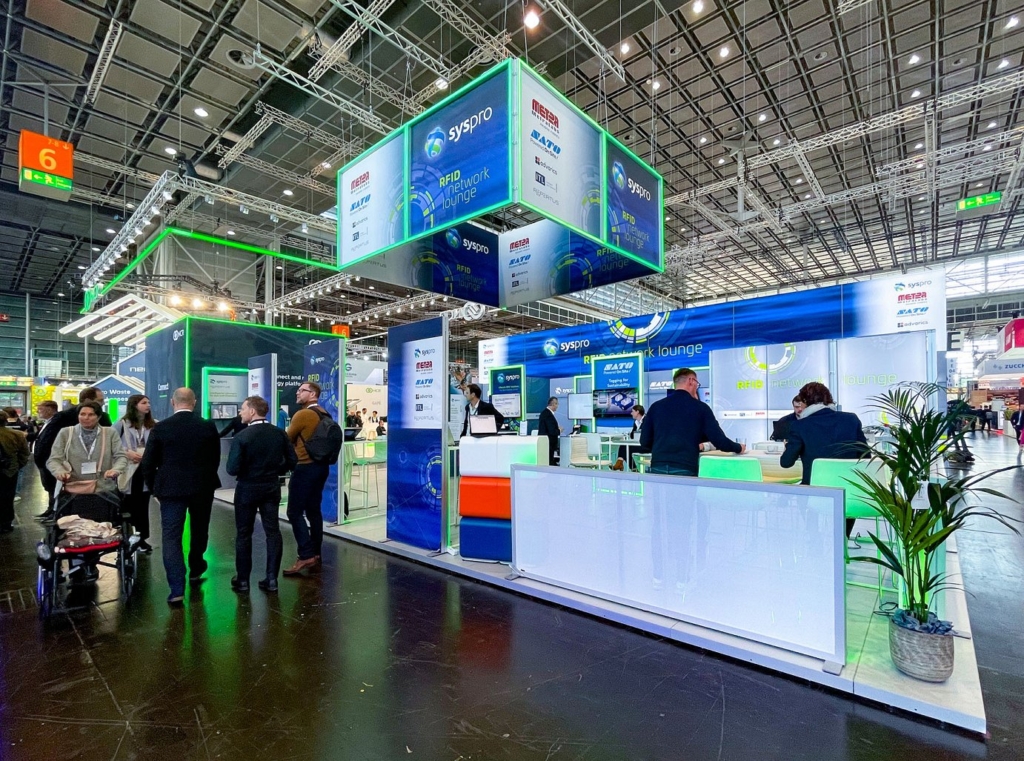With retailers still struggling with significant disruption to supply chains, we look at what performance solutions for Black Friday retailers can employ in this busy selling period.
What Performance Solutions Are Available To Retailers For Black Friday?

Traditionally, Black Friday has been one of the most successful times of the year for retailers. The total amount of sales during this period – especially online – has only increased year on year, and by employing effective performance solutions for Black Friday, retailers can often outperform their yearly KPIs in this one weekend.
However, this year is set to be different. Companies are already grappling with the ongoing supply chain crisis, but long-term changes to the retail sector make this year more difficult for retail businesses.
Research has shown that the retail industry is one of the most disrupted of all sectors. This disruption comes from all areas, and isn’t just limited to supply chains or the result of the pandemic. 43% of senior retail executives say the shift towards e-commerce has had a major impact on their organisation, but this is closely matched by other factors. These include evolving competition (38%), data privacy issues (37%), shifts in consumer demographics (35%), and technological advances (34%).
Not only is disruption affecting all areas of retail operations, but senior executives lack the confidence to tackle this disruption. Just 40% of retail leaders feel confident that they can survive the current disruption. To tackle this disruption, more innovative performance solutions for Black Friday are necessary to improve upon last year’s sales.
Despite the disruption, this Black Friday 2021 still looks promising for retailers. Online sales continue to increase, following a broader trend in retail but also as a reaction to the pandemic. Holiday spending this year is forecasted to increase by 10% compared to last year, while e-commerce is up 45% compared to 2019. Retailers can easily capitalise on this drive towards spending by pre-empting demand and turning to new performance solutions for Black Friday.
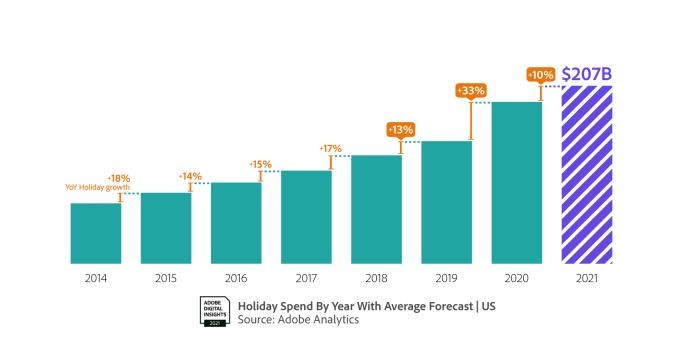
No matter which retail solutions leaders want to prioritise this year, they will undoubtedly be informed by digital transformation – 53% of retail organisations are choosing to invest in new technology to combat ongoing and future disruption. Whether that’s inventory software like RFID or improving their omnichannel customer experience using other forms of retail technology, there are a wide range of digital performance solutions for Black Friday for retailers to take advantage of.
The Current Issues Affecting the Retail Environment
The retail industry is going through a period of sustained volatility, with much of this uncertainty being driven by the on-going supply chain crisis and the recovery from the pandemic. Earlier this year, we looked into the supply chain crisis in detail, examining how the crisis got to this stage.
Unpredictable consumer demands mean that the supply chain crisis has been building for a long time. However, incidents like the pandemic, the blockage of the Suez Canal by the Ever Given container ship, and labour shortages all exacerbated the problem. Just the Suez Canal blockage alone caused an estimated loss of $9.6 billion worth of goods each day.
But how can businesses adapt to the crisis? The biggest change retailers can make is to embrace digital solutions such as AI-driven forecasting and cloud software. But as 87% of retail executives now agree that disruption is a primary challenge confronting both business and society, it’s clear that there is more uncertainty in the future retail landscape. Though we’re seeing the first signs of recovery from the pandemic among retailers, there’s still a lot of change to come.
Whether that’s the increased use of AI in customer service, the rise in e-commerce, new forms of payment including virtual currency, or tackling large competitors like Amazon, the industry is changing rapidly. Now, retail solutions don’t just need to respond to crises as they happen but also anticipate periods of uncertainty and volatility. As a consequence, retail performance solutions for Black Friday should offer short-term growth and long-term investment in technology to future-proof retail operations.
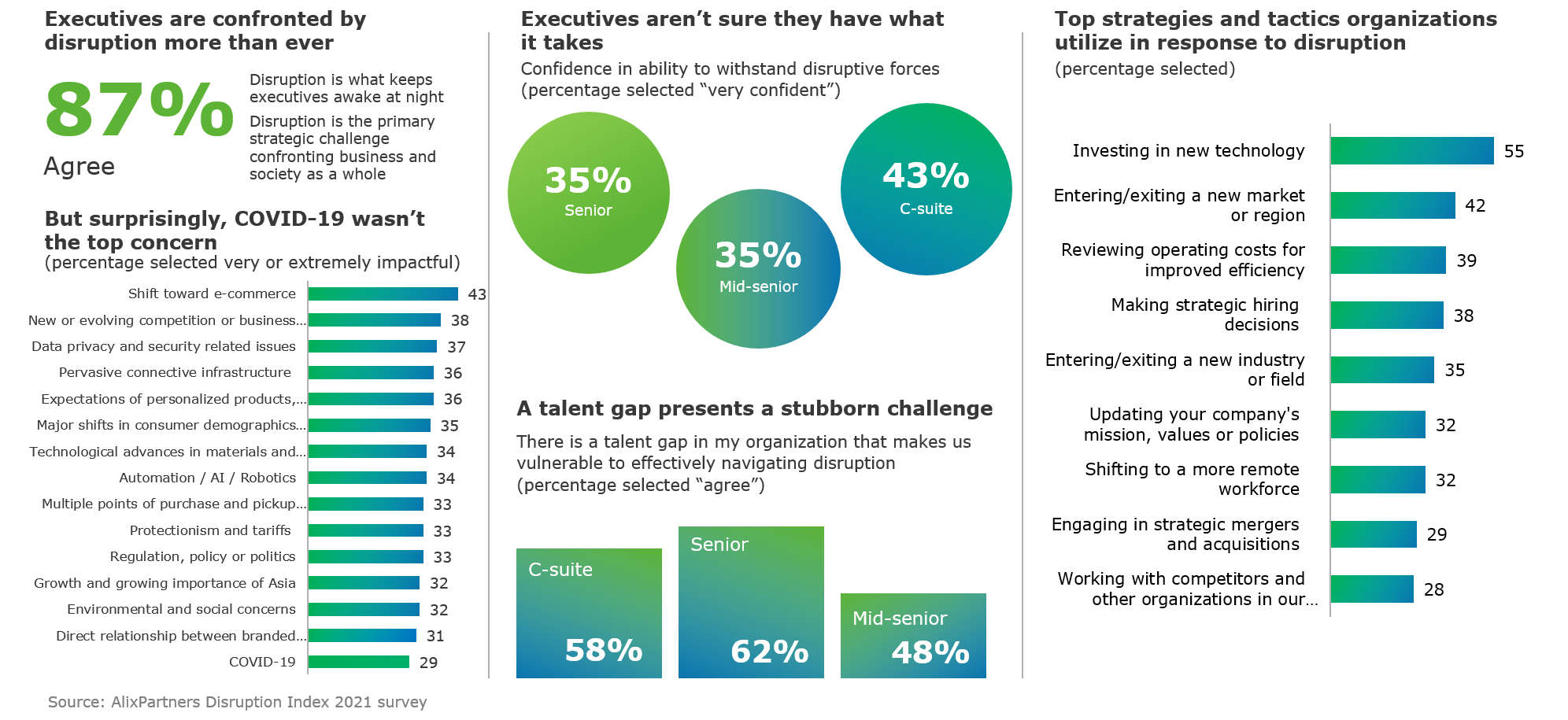
How Consumers Are Changing and What This Means for Retailers
As businesses consider retail solutions to survive this long period of volatility, it’s worth noting that consumers are also changing. With issues like sustainability and omnichannel retailing becoming new priorities for consumers, businesses can no longer rely on outdated performance solutions for Black Friday. Instead, digital retail solutions like RFID allow retailers to anticipate consumer demand and successfully respond to new trends.
The largest chain in consumer habits has come with the rise of Generation Z consumers. These shoppers have increasing disposable income yet are more concerned than older generations with where they spend it – 70% of Gen Z consumers say they monitor their spending more carefully as a result of the pandemic. As such, any proposed performance solutions for Black Friday need to consider their concerns and habits.
In addition to this, Gen Z consumers are more likely to take advantage of omnichannel retailing. More so than the average customer, they want to shop whenever and however they like. They are 56% more likely to shop in-store for goods, but at the same, also 38% more likely to shop online than other generations. Consequently, performance solutions for Black Friday need to consider how to provide an omnichannel experience. In some cases, business leaders should also consider adding additional services like shipping products from a select store or returning to any store the customer chooses.
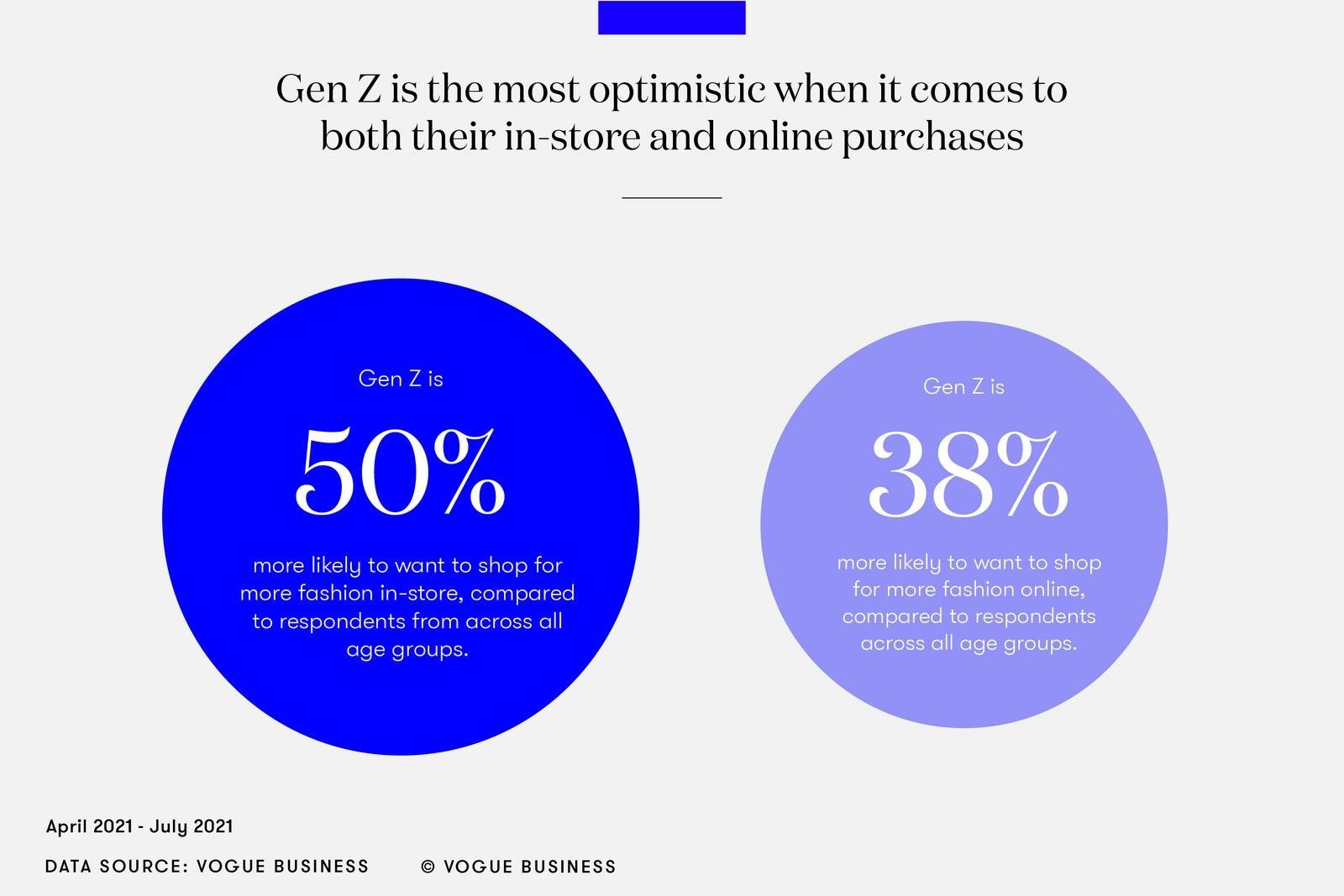
The importance of omnichannel retailing cannot be underestimated. One survey from Harvard Business Review found that though just 7% of customers shopped exclusively online, 73% actively moved across multiple channels, favouring both in-store and online experiences. The omnichannel customers liked to use multiple touchpoints with brands and were also keen users of in-store digital tools like price checkers and interactive catalogues.
In short, the new generation of consumers can flexibly move from in-store purchases to shopping online. However, despite this move towards online purchases, they still predominantly shop in-store – over half of digital-savvy consumers still choose to shop in-store, with 49% of consumers valuing being able to visit showrooms and then purchase those products online. This means that you need to prioritise store solutions as much as online and omnichannel retailing.
Generation Z consumers are also more likely to be concerned with the environmental impact of their purchases. With COP26 – the UN’s Climate Change Conference – having just ended, fashion retailers are just one of the industries committing to store solutions that prioritise sustainability. Thanks to the pandemic and the global spotlight on climate change, six out of ten Gen Z consumers are more conscious about the items that they buy.
Last year, we examined the recommerce and rental trend among retailers, predicting that it would be one of the biggest retail trends of this year. While consumers are driving demand for a circular economy, bringing a recommerce environment to stores brings its own unique challenges. The most complicated of these challenges is how to track a large amount of unique inventory through the supply chain and into stores. One solution to this is RFID tagging, which when combined with the use of inventory software can give retailers more accurate stock counts.
So, what does all this mean? Primarily, it shows that businesses should prepare performance solutions for Black Friday that prioritise the customers of the future – shoppers who want uncompromised accessibility to products wherever they are and new ways to purchase and return their products.
How to Navigate the Challenges of a Volatile Retail Environment
Most importantly, newly implemented performance solutions for Black Friday should tackle how to outperform this year, but also in years to come. Reliance on digital products like inventory software and AI will only increase in the retail space, and businesses that anticipate this will get ahead of the competition. For example, RFID is experiencing what McKinsey is calling a ‘renaissance’ in retail, with technology costs having fallen while new innovations mean even more cost-saving benefits for retailers.
With just a couple of weeks to go, some businesses may not be ready to implement new performance solutions for Black Friday. However, Christmas is also just around the corner, providing another chance to outperform before the end of the year. While January sales don’t reach the same peak as Black Friday – when businesses often make up to 20% of their sales revenue for the entire year – they are still valuable.
Technology and Analytics
Digital transformation is a crucial phrase for retailers when it comes to tackling periods of uncertainty. Still, performance solutions for Black Friday that focus on innovative technology can offer retailers the chance to outperform competitors.
Retailers that harness solutions like predictive customer analytics will know exactly what consumers are looking for and which products might be most in demand during Black Friday and Christmas shopping. Retailers who employ AI have seen a collective $40 billion worth of additional revenue over a three-year period.
Inventory software is another innovation that will make busy shopping periods more seamless for retailers, with 46% of companies having already implemented RFID as a reaction to the pandemic. We know that use of RFID will only increase, making it a promising performance solution for Black Friday for retailers to consider.
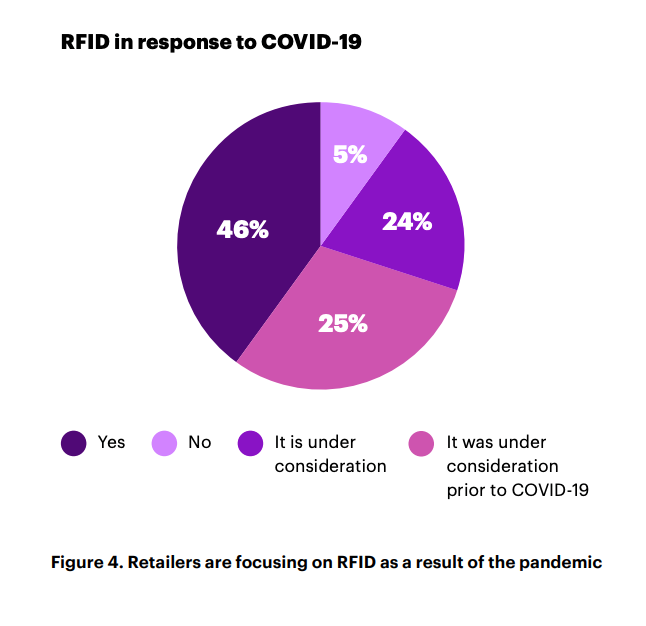
Re-imagining the Brick-and-mortar Shop
The pandemic has dramatically accelerated the pace of digital transformation in retail supply chains and stores. Over just a few months during the pandemic, executives have implemented close to three or four years of digital innovation in their companies.
Globally, 58% of business interactions with customers are now digital, an acceleration of three years compared with the average year-on-year increase. Consequently, businesses who want to implement successful performance solutions for Black Friday will inevitably turn to technology.
However, it’s also true that consumers may harbour anxiety around shopping in-store for some time. Though it’s unlikely that measures like one-way floor plans and plexiglass screens will stay in place for much longer, retailers will need to reimagine the in-store experience with the consequences of the pandemic in mind.
This might include incorporating aspects of digital experience in physical stores, such as intelligent AI personal shoppers on the customer’s phone or digital mirrors in changing rooms that can provide product recommendations in real-time. These store solutions will reimagine the pre-pandemic store, and take advantage of digital innovations that customers will be seeking in the future.
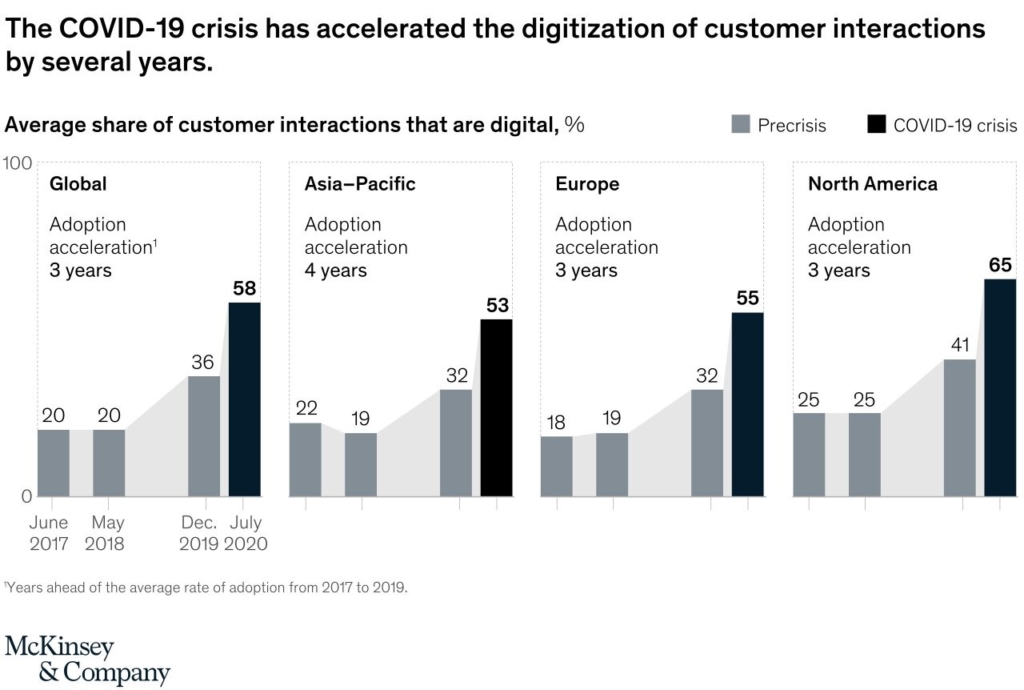
Omnichannel Retail
Perhaps the biggest retail solution has to be the shift towards omnichannel retailing. Stores can no longer solely exist in a physical or online space but a combination of the two. It turns out that omnichannel customers are also more valuable for businesses, spending on average 4% more on every shopping occasion in store and 10% more online than the average single-channel customer.
We know that consumers want omnichannel experiences, but implementing a performance solution for Black Friday that incorporates this may be more difficult. Inventory software like RFID tags is one solution, offering retailers a way to track stock across the supply chain, both in warehouses and online.
RFID as a Performance Solution for Black Friday
Especially at times of increased volatility and demand, more accurate stock inventory is one of the easiest ways to improve your company’s performance. This is even more important right now when supply chain issues make it more difficult to get an accurate picture of your inventory. Inventory software is the ideal performance solution for Black Friday, offering retailers an accurate picture of stock and the ability to navigate periods of increased demand successfully.
Preventing Out-of-stock Notices
Research from RetailEXPO has revealed that 31% of customers want retail employees to help them with out-of-stocks. This is crucial during Black Friday when demand will be higher, and customers may be looking for specific items in sales. Retailers who have adopted inventory software like RFID will be more likely to uncover new stock, having insights into where the same shipments and products are in their supply chain journey.
Omnichannel Retailing
While there will be an increased number of shoppers heading to physical stores this year, many Black Friday shoppers will still resort to online purchases. RFID easily allows retailers to keep track of stock across online and in-store sales and offer customers the chance to pick up their purchases in-store. As reliance on a mix of channels grows, inventory software is crucial to accurately track stock, increasing performance during times of increased demand like Black Friday.
Detego’s all-in-one retail solution gives you the tools to command complete transparency over your supply chain and inventory. We harness the power of RFID alongside an end-to-end SaaS inventory software platform that improves inventory accuracy.
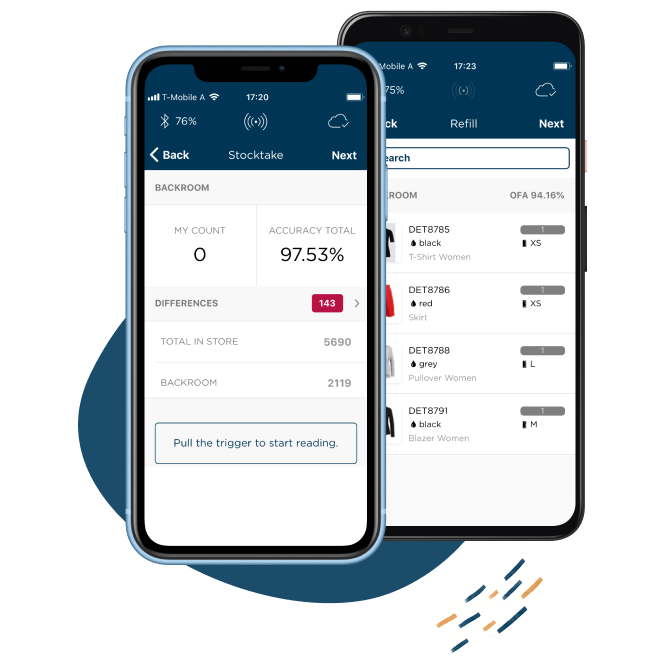
Cloud-hosted RFID software
Stock accuracy, on-floor availability, and omnichannel applications in stores.
Book a demo with RFID to find out how our cloud-hosted RFID solution could help you outperform during busy sales periods. Our multi-user app can provide intelligent stock takes and a smart in-store replenishment process and later, you can scale the solution to offer omnichannel services and effectively manage your entire store operations with real-time, item-level inventory visibility and analytics.

